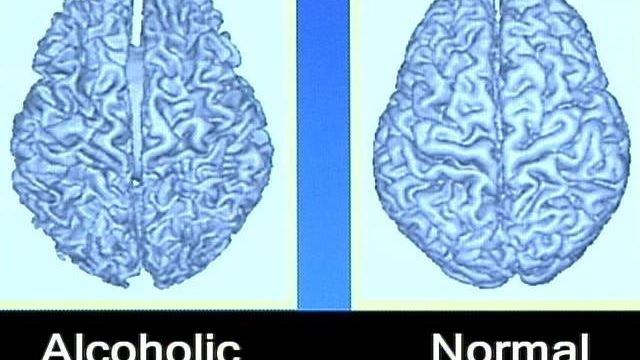Medication + Counseling Can Help Alcoholics
Alcohol abuse is a major cause of family violence, child abuse and criminal action. It can lead to liver damage, heart disease, high blood pressure and increased risk of breast cancer in women.
Posted — UpdatedMost college students are now settled into their campus lifestyle - one that may involve what many students look upon as a rite of passage: binge drinking.
College isn't necessarily the starting point for alcohol abuse. A recent U.S. government survey found hard liquor is the choice of 40 percent of teens who try alcohol, many of whom are in middle school.
It's no wonder that one out of three Americans has had a problem with alcohol at some point in their life. Many will tell you there's a heavy price to pay.
There are 25,000 deaths every year in the U.S. from highway crashes. Sixty percent of them are alcohol related.
Alcohol abuse is a major cause of family violence, child abuse and criminal action. It can lead to liver damage, heart disease, high blood pressure and increased risk of breast cancer in women.
Dr. James Garbutt, a UNC psychiatrist and research scientist for alcohol studies, said chronic alcohol use also kills brain cells. He said it can actually shrink the brain. That's something adolescents can't afford since their brains are still developing.
"Particularly in that region of the brain that are associated with planning, judgment and sort of figuring out your life and which way it should go," Garbutt said.
Programs like SafeTeens offered to drivers’ education programs across the state teach about the risks of alcohol and drugs on driving. Education is the key, Garbutt said, to stopping a lifelong dependence and the toll that it takes.
"If we can delay the age of drinking and delay a heavy drinking problem, then we may reduce alcohol dependence,” Garbutt said.
Garbutt said if alcoholics can first acknowledge their dependency and seek help, they can begin a process of recovery.
First, he said, alcoholics need to detoxify their body by getting the alcohol out of their system. That typically involves three to four days, most often done in a hospital. Then comes counseling, either in a group support program like Alcoholics Anonymous or private counseling.
New drugs are available such as Naltrexone, an opiate blocking medication that comes in pill form or a longer lasting once a month injection called Vivatrol. Alcohol stimulates a pleasure center in the brain and releases beta-endorphins that create that buzz or high.
Naltrexone blocks the endorphin receptors in the brain so the person doesn't get the same pleasure from drinking. There are other drug options to help cut craving. Garbutt said medication plus counseling can be very effective.
• Credits
Copyright 2024 by Capitol Broadcasting Company. All rights reserved. This material may not be published, broadcast, rewritten or redistributed.





